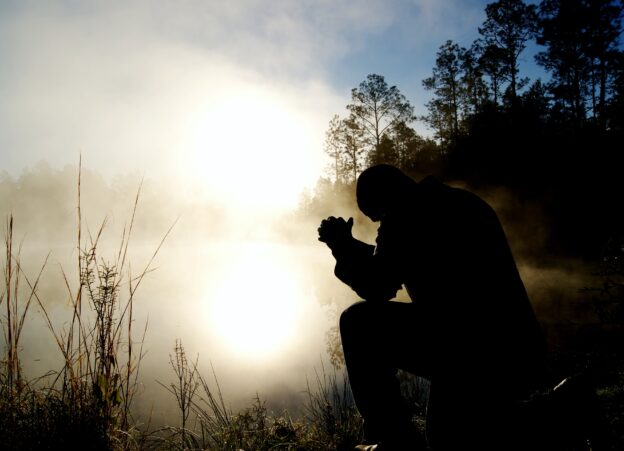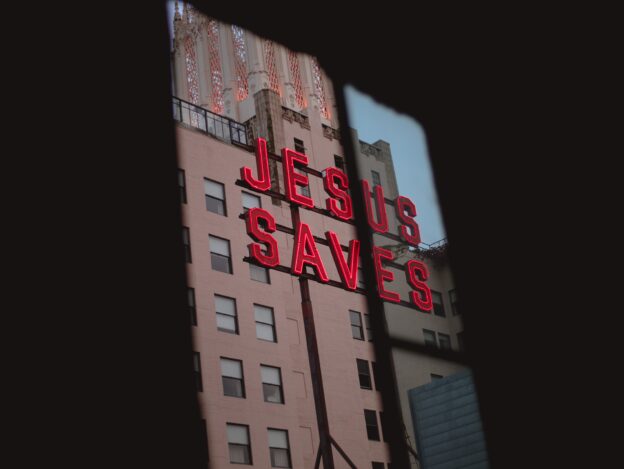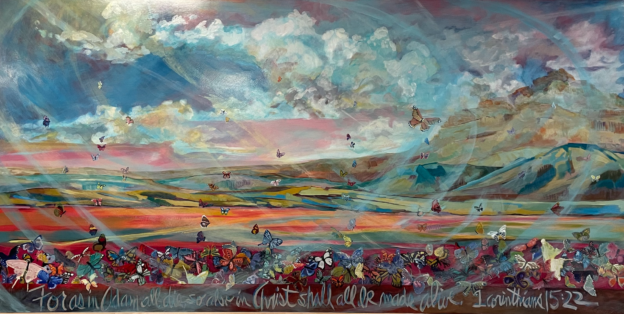Tucked away in the Old Testament story of Joseph’s journey into Egypt is a verse packed with far more meaning than appears on the surface. It teaches an eternal truth that we’d do well to consider as we enter the New Year. Rehearse the story.
Sold into slavery by his brothers, Joseph found favor with the Pharaoh and became one of the trusted officials in Pharaoh’s court. A strange irony of fate, obviously the providence of God, brought Joseph and his brothers who had betrayed him together again. A famine had ravaged the land of Canaan. The people were without food and they came to Egypt seeking to buy food from the Pharaoh.
It was soon revealed that the person with whom they had to deal was the brother they had sold into slavery. The tables were turned. Here they were asking for food from the person they had cast away. When it came to Pharaoh’s attention that Joseph’s brothers had come, it pleased him. He instructed Joseph to bring the whole family away from Canaan, promising to give them the goods of all the land of Egypt, and it is at this point that a power-packed Scripture passage is found. “Do this, said Pharaoh, take wagons from the land of Egypt for your little ones and your wives, bring your father and come. Give no thought to your goods, for the best of all the land of Egypt will be yours.” (Ex. 45:20) King James’ version translates that word this way: Regard not your stuff, for the best of all the land of Egypt will be yours.
There’s all sorts of meaning in that. Another translation has it – leave your stuff behind.
Six years ago, Jerry and I moved into a “life care community.” We have not had a single reservation. Being a Methodist preacher, we have moved numerous times. At our age and station, our intention is this is our last move, til the Lord moves us home with him. Though comfortable with that fact, we were not prepared for both the emotional and physical ordeal. Moving is tough!
The monumental issue: what do we move? What do we leave behind? Moving from 3600 square feet to little more than one third that size didn’t help. It’s amazing how much “stuff” you can accumulate in 66 years of marriage. Thus the pressing question, “What stuff must we leave behind?”
I invite you now to take a huge emotional/spiritual step with me … What is the stuff, the real STUFF, we need to leave behind as we move into 2024? Let’s be honest.
Self-pity is one bundle of stuff I want to leave behind. I don’t know of a heavier burden which many of us carry than self-pity. It’s the kind of burden we are unwilling to drop off. Someone hurts our feelings and we carry our hurt with us forever. We’re treated unfairly and we never forget it. Something happens in our family and it seems that we’re being put down. Someone else is receiving special treatment, so we get a kind of stepchild complex. We suffer physically and we get the idea that the whole universe is out to persecute us. Such an easy snare to fall into, self-pity. Let’s leave it behind this year.
The second bundle of stuff we need to leave behind is what I call illegitimate responsibility. I’m talking about the responsibilities which we rigidly claim for ourselves, but which don’t legitimately belong to us.
You know what I’m talking about? We bury ourselves beneath a great burden of responsibility we can do nothing about; that really doesn’t belong to us. We have simply, illegitimately assumed it.
Our journey into this New Year will be more meaningful if we can determine that there are certain responsibilities which are ours. These we will accept and give our resources to. There are other responsibilities which we simply have to leave with others and with God. Let’s leave it behind.
Along with self-pity and illegitimate responsibility, (we can’t name them all) I mention one other bundle that needs to be cast off as we stride into this New Year. I call it the bundle of cancelled sin. The phrase comes from Charles Wesley’s hymn, ‘Oh For A Thousand Tongues To Sing.’ He claims that this is the work of Christ:
“He breaks the power of cancelled sin,
he sets the prisoner free,
his blood can make the foulest clean,
his blood a veil for me.”
Scores of people who beat a steady stream to my study door for counseling are burdened down by cancelled sin. Somewhere in the past, they have done those things, been involved in those situations, had relationships about which they feel morbid guilt. They carry this burden around as an inside burden which no one knows about. But like a malignancy, it grows and spreads until it poisons the person and brings a sickness unto death. I doubt if there is a reader who does not have an idea what I’m talking about. The memory – the haunting memory of some past wrongdoing devastates our life.
It is the very core of the Christian gospel that God through Christ forgives our sins, and our sins are cancelled by God’s grace. But obviously, this fact and experience are not enough. Cancelled sin still has power – destructive power, in our lives.
How then is the power of cancelled sin actually broken? There is one key: confession and inner healing. I believe that under most circumstances, not only confession to God but confession to another is essential for healing and release from the power of cancelled sin. This is the reason James admonishes us to confess our sins to one another and pray for one another (James 5:16). Once we have confessed to a minister or to an intimate friend, the poisonous guilt that has been bottled up inside is released.
A medical analogy is apropos. When an infectious boil appears somewhere on the body, antibiotics are given. If these do not destroy the infection, usually the infection is localized and has to be lanced. The surgeon uses the scalpel and opens the boil in order that all the poison might be drained.
Confession is something like the surgeon’s scalpel. Honestly opening our lives in confession, the poisonous guilt we have bottled up within has a chance to flow out. Confession becomes the cleansing process by which the self is freed from the power of cancelled sin.
Now there are two requisites for redemptive confession – one, you must trust the person, the person or the group, to whom you confess; and two, your confession must not be destructive to another person. We dare not disregard the health and wholeness of another in order to seek our own release. The big point is that the burden of cancelled sin is too great for us to carry into the New Year. You can leave that stuff behind, because God forgives. Let us leave it behind.
2024 is a new year. Leave your stuff behind — self-pity, illegitimate responsibility, cancelled sin, all your junk. Leave it. You are forgiven. Your failure and weakness is accepted. Your past is buried in the sea of God’s loving forgiveness. Go into the New Year with Christ, and go joyfully.









